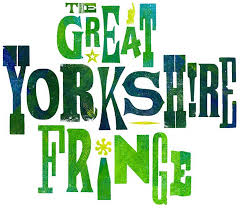
EVERY gag has a punchline, but sometimes, as Morrissey once sang, that joke isn’t funny anymore, and so the Great Yorkshire Fringe has had its last laugh in York after five years.
Founder and director Martin Witts, a hugely experienced impresario who runs the Leicester Square Theatre and Museum of Comedy in London, but whose home and heart are in York, cuts a frustrated figure in his reasoning.
“Our experience of sponsoring, curating and managing an event in this small city of ours has led us to the conclusion that until a well-managed and efficient city-centre management is implemented, a festival of our size cannot thrive and does not have a place in York,” he said in his formal statement.
Loosely translated, that means red tape, whether applied by the City of York Council or its cultural ambassador, Make It York.
Were his grievances insurmountable? Did they leave him at his Witts’ end? Or is there more to it than that?
Last summer, there was no longer enough room at the St Sampson’s Square end of Parliament Street to accommodate The Turn Pot tent to complement the White Rose Rotunda spiegeltent and The Teapot tent on the festival village green, and so the festival spread out to more locations than ever before across the city. On the one hand, that increased the festival profile; on the other, crucially it dissipated its central meeting ground.
Some people said the ticket prices were high, some reckoned the quality of the acts had lowered, especially among the newer, burgeoning acts making their way to the Edinburgh Fringe; others felt the same names kept returning.
In other words, festivals have a natural cycle, and the fickle world of comedy is particularly prone to “the new rock’n’roll” going in and out of fashion.
Could Martin Witts take the Great Yorkshire Fringe to another Yorkshire city? Possibly, but more likely he will deliver on his promise to continue to invest in the cultural scene of York with high-quality individual events, although a spiegeltent festival would be most welcome too.
Charles Hutchinson
Copyright of The Press, York
